A Center for Hope in Za’atari Camp
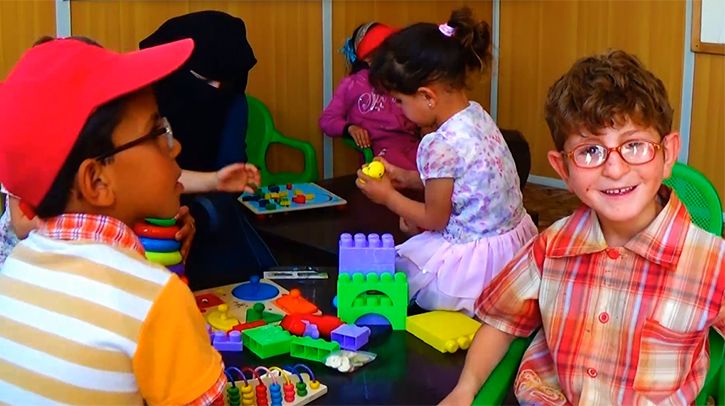
Six-year old Ibrahim is concentrating on his fingers. Legs tucked under his chair, he imitates his teacher who is showing the boy how to make words with his hands. As part of his sign language lesson, Ibrahim’s eager brown eyes bounce from teacher to book to hands and back again. He sits beside other children in a classroom filled with colors, pictures and laughter. He cannot hear them, but his enthusiasm and vision are clear.
Though Ibrahim is deaf, his hope for a good education is strong here, just a few tents away from where he lives with his family in the Za’atari Refugee Camp near the Syrian border of Jordan. Most days, Ibrahim joins dozens of other children with disabilities for daily instruction at the center run by the Holy Land Institute for the Deaf (HLID) and its network of colleague agencies, which serves as both a bright social spot in the camp and as a school for children who might otherwise be overlooked.
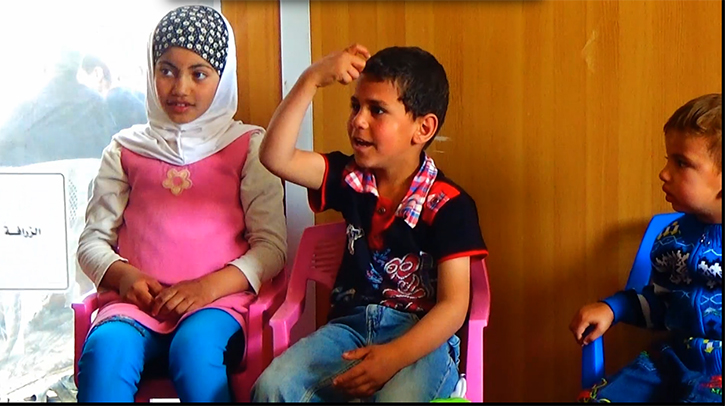
Since 2013, the Za’atari Disability Center, with support from Episcopal Relief & Development, has provided a much-needed gathering place for addressing the learning needs of children with disabilities who are also affected by the traumas of war and displacement. Some have visual impairments; others may have hearing or mental disabilities. But all receive caring guidance, instruction and friendship through HLID staff and the center’s 14 volunteers, many of whom are themselves living in the camp and looking to contribute the skills they used as teachers in Syria.
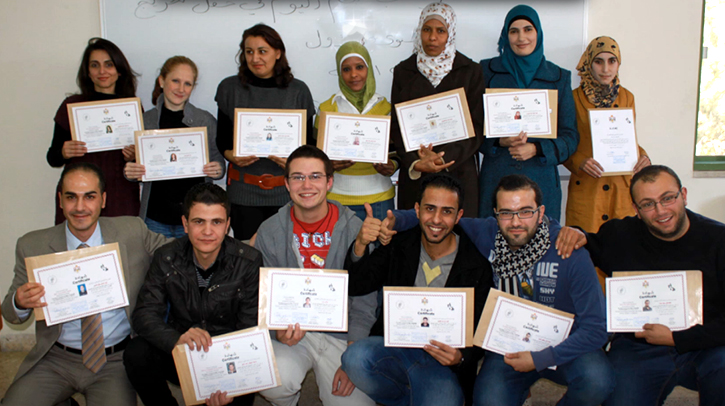
It has not been easy. Since civil unrest and military hostilities escalated in Syria five years ago, an estimated 1.4 million people have accepted the hospitality of their neighbors in Jordan, with many ending up at the Za’atari Camp. Organized by the Office of the United Nations High Commissioner for Refugees (UNHCR), the camp began as a fenced-off strip of desert for an initial 38,000 Syrians with limited infrastructure and services. Today, it is home to over 170,000 Syrian refugees, making it the fourth largest ‘city’ in Jordan. Dreams, careers and lives are on hold given the troubles back home, and families share tents, kitchens and toilets across the camp in the daily challenges of survival. What was always meant to be a temporary resting spot has become a static and somber place five years into the crisis.
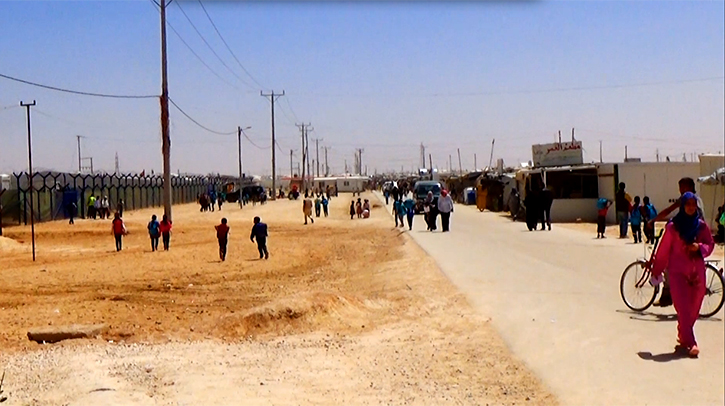
“So many families fleeing catastrophe, war and death become uninvited guests in another land, and many children with disabilities become the most vulnerable,” says HLID Director Brother Andrew L. de Carpentier, who launched the Za’atari Disability Center with support from Episcopal Relief & Development and other organizations. “Thank God for the goodness and kindness these guests meet on the way, like Mary and Joseph did in Bethlehem. Thank God that we are able to help them pick up some of the pieces of their lives and look after their children who already struggle with disabilities.”
That ‘looking after” resembles a school that might be anywhere: The walls of the center are painted with Smurf characters and an array of bright colors. Building blocks, floor mats, books, tables and toys fill the classrooms. The halls are abuzz with giggles and chatter. Children, teachers and volunteers interact in a constant motion of compassionate learning, turning this makeshift structure into a happy contrast to the camp beyond.
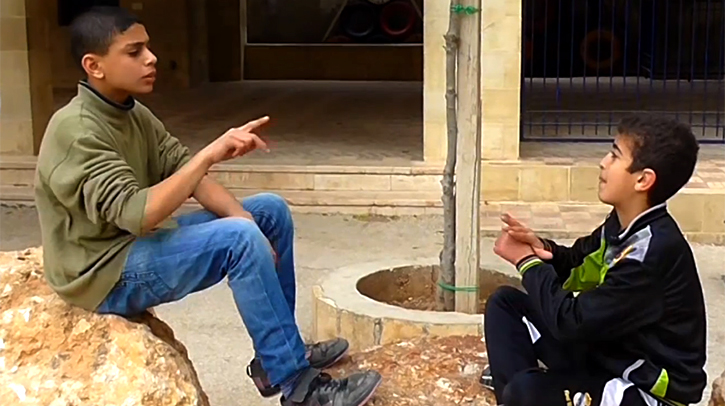
But it wasn’t always like this. Low budgets and stretched staffs in the UNHCR and other organizations working in the camp meant refugees with special needs too often were overlooked in the larger efforts. Having made it his life’s work to provide hospitality and care at the HLID, Brother Andrew grew increasingly concerned about the situation.
He began to contact agency representatives. What he discovered by October 2012 was that no agencies in the Za’atari Camp offered disability programs. And if those children with hearing or visual impairments as well as physical, cognitive or neurological disabilities received no services or had no facilities, it meant their participation in everyday life and education was all the more complicated. It also meant entire families were being affected.
So along with colleagues in the Network, a coalition of Jordanian disability-related organizations that HLID formed in the early 1990s, Brother Andrew and his team went to work, setting up the Za’atari Center.
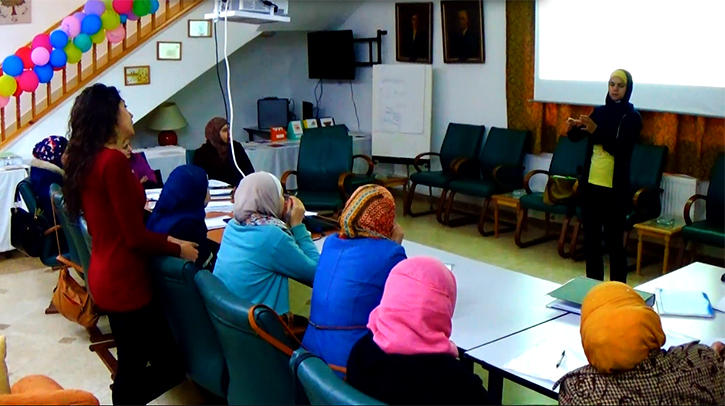
“At first we had caravans in the camp, but rains flooded [people’s tents] and many refugees took shelter in them,” he says. “That was really a blessing in disguise because it meant we had to go from tent to tent passing out leaflets to let them know about our services. We gained trust and built relationships that way, so that now we are known throughout the camp as the center where help is possible.”
This help is an extension of the many services HLID has offered for the past 50 years. Whether fitting a child for a hearing aid, teaching sign language, providing instruction for visually impaired students or training and equipping teachers who work with other children with special needs throughout the Middle East and in Afghanistan, HLID has empowered people to engage with their realities through all of their programs, including their refugee outreach services in Za’atari Camp.
That’s good news for children like Ibrahim and seven-year old Rami. Rami is hard of hearing, but here in the Za’atari Center he is learning how to speak. Wearing his championship t-shirt, he stares hard at the pictures in the book his teacher points to, and tries to say each “word” out loud: Hammer. Fruit. Sky.
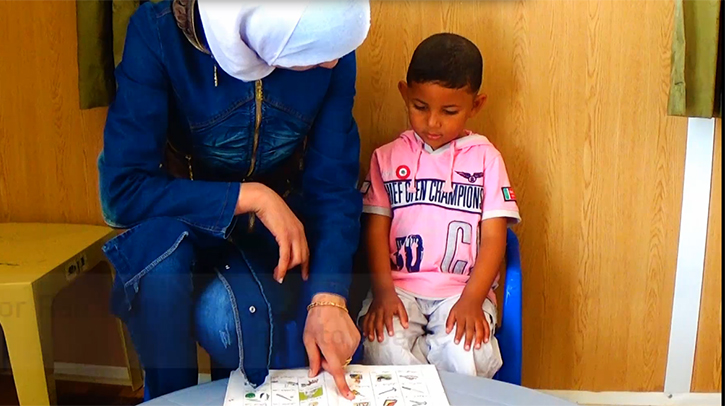
The word sky suddenly means more than it might otherwise. It shows how a center in a camp for Syrian refugees has become an opportunity for hope, a place where hospitality is as bright as the desert sun.
—————————————–
 Faith Rowold is the Communications Officer at Episcopal Relief & Development
Faith Rowold is the Communications Officer at Episcopal Relief & Development
Article written by Faith Rowold with Jo Kadlecek.
Photos courtesy of Holy Land Institute for the Deaf (HLID).
Image Captions: Top, Smiling boy. Middle 1, Ibrahim learning sign language. Middle 2, Adults with training certificates. Middle 3, Za’atari Refugee Camp. Middle 4, Boys communicating with sign language. Middle 4, Adult sign language training class. Bottom, Rami learning how to speak.


